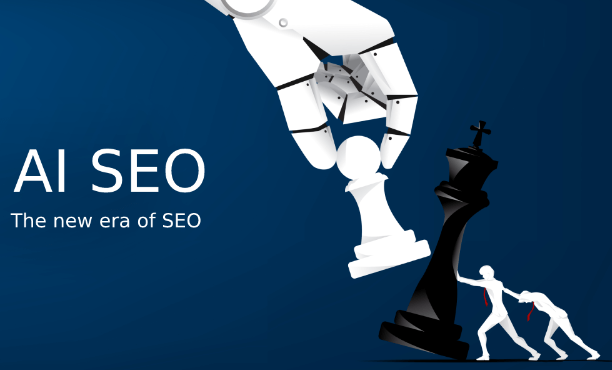The Most Exciting Applications of AI in SEO Right Now

Today, AI changes how we find words that matter most. The use of smart tech helps pick out long, special words aimed at folks really into what you sell or offer. This might not pull in big crowds but brings people closer to buying or signing up since it hits right where they need it.
It’s about choosing quality over just being seen by many eyes. Such smarts don’t make things fast but certainly aim for real results over time, guiding users your way more surely.
Contents
- 1 Understanding User Intent with AI
- 2 AI-Driven Content Optimization Strategies
- 3 Voice Search and Conversational AI Integration
- 4 Predictive Analytics for SEO Forecasting
- 5 Automated Technical SEO Audits with AI Tools
- 6 Enhancing Link Building Efforts through Machine Learning
- 7 Real-Time Personalization in SERP Rankings
Understanding User Intent with AI
To grasp user intent in SEO, you must understand the “why” behind each search. It’s about the reasons driving users to type their queries. Knowing where they stand in their journey helps craft content that meets their needs, enhancing engagement and experiences.
Users show us clues through what they look for online. It’s your job to decode these signals. At first, a person might seek broad answers – aware of a problem but unclear on solutions. This stage involves general terms in searches.
As they learn more, searches get slightly specific. They know what will solve the issue but do not know who will provide it best. Moving deeper, when someone understands exactly what eases their pain points, queries become detailed and targeted towards particular products or services. Their language reflects this precision.
Finally comes cost awareness; now ready with product knowledge yet exploring affordable options within budget constraints via focused questions around pricing details.
Precisely tuning into these stages allows tailoring impactful strategies that connect closely with varying customer needs at different phases, turning potential leads into committed customers by speaking directly to their changing concerns throughout.
AI-Driven Content Optimization Strategies
AI tools now play a big part in making your web pages do well. They help save time, letting you focus more on planning. The right tools are key though.
Many new AI SEO aids have come up as easy-to-use AI has become common recently. Yet, picking the best ones is tough since we’re still early in using this tech. Look into tools like ClickFlow for quick tests and see which SEO tasks are worth your next effort.
Don’t overlook powerful SEO helpers like Ahrefs and Semrush either. They keep adding smart AI features that can really change how you work, even scraping the web fast or coming up with lots of keywords in no time. Use these aids to try out different titles and content layouts, and then check what works best online or for those visiting your site directly. You might also enjoy playing with generative AI yourself to craft content bit by bit.
Keep learning about SEO and how it’s changing due to advancements in Artificial Intelligence (AI). Understanding both areas deeply makes sure you always stay ahead.
Voice Search and Conversational AI Integration
You need to know how voice search and AI chat work together for SEO. These tools understand spoken words with natural language processing or NLP. This matters more as people use phones and smart devices all the time.
They’re built to get our voiced-out questions and turn them into answers online. For your website to be found this way, it needs special tweaks for voice-only searches. Think about longer phrases folks speak out loud but wouldn’t type; that’s what you aim for in content now.
Keep mobile users in mind too since most voice searches happen there. Make sure they find your site easy to use on their screens. Voice queries are usually full sentences like someone asking a friend for help – not just short keyword stabs we used to type in a search bar.
Predictive Analytics for SEO Forecasting
In SEO, understanding what users want is key. With AI, you can look at past user actions to see what they might like next. This makes your marketing sharp and on target.
AI helps in many ways, for example, by studying how users talk with chatbots or their feelings about something online. This info lets you craft content that really speaks to them. Also important are voice search and visual search, thanks to tools like smart speakers or augmented reality for trying clothes virtually.
These advances change how people shop and find information online. AI shines in predicting future trends too using data analysis far better than guessing alone could achieve. It means knowing the right moves for top spots on search pages becomes more doable because of data-based predictions from AI.
Remember to follow the rules set by search engines for content creation and lead generation. Not breaking these guidelines will boost your strategy and avoid trouble.
Automated Technical SEO Audits with AI Tools
Automated SEO tools from platforms like LocaliQ change how we approach organic search. These technologies allow for the automation of tasks that were once manually intensive, saving time and resources. By leveraging AI, such tools can tackle repetitive jobs efficiently, leaving room for more complex strategy planning.
In this competitive digital age, not using these advancements puts you at a disadvantage against those who do. It’s crucial to identify which SEO activities benefit most from automation while recognizing others still need human insight. Start by focusing on automatable tasks to enhance your content output and speed up growth without compromising quality or strategic depth.
Enhancing Link Building Efforts through Machine Learning
Machine learning changes how we build links. It looks at tons of data to find good backlink chances. This tech sees which sites and posts might be good for quality links, making the hunt quicker than in old ways.
Now, you don’t have to ask by hand; machine learning does it smarter and faster. It finds where to get new links and checks if the ones you have are any good. By seeing what content your audience likes, outreach gets better targeted for more impact.
Tools powered by AI keep track of how well link-building is going, showing key places for improvement or spotting gaps between you and competitors. We use smart analysis tools that examine many websites quickly, checking their worthiness for a backlink based on domain authority, among other factors. This makes sure your efforts in getting links to bring real results are tailored just right.
Real-Time Personalization in SERP Rankings
In the world of SEO, real-time personalization in SERP rankings is key. Search engines use AI to tailor results based on a user’s search history, location, and online actions. This means you need content that speaks directly to specific groups rather than broad audiences.
As search dynamics evolve with AI’s influence growing stronger by the day, personalized outcomes become standard for users. AI not only plays its part through analysis but also via chatbots giving conversational responses instantly and collecting valuable data on user preferences which informs more strategic SEO practices. Moreover, utilizing AI tools can spotlight areas where your website could perform better in relationally connecting with potential visitors or improving operational efficiencies.
However, cautious one must be about possible challenges such as losing grip over ranking positions or traffic sources due to these adaptive technologies shaping visibility mechanisms unpredictably at times, and staying informed and adaptable remains crucial for success.
AI transforms SEO, making data work smarter. It spots trends fast and tailors content to fit user needs better than ever before. Tools now predict what people search for, helping sites show up at the right time.
AI also improves website speed and how well it talks to users, boosting visits and keeping them coming back. This shift means businesses can be more in tune with their audience, ensuring they stay ahead in a digital world that’s always changing. Truly, AI is reshaping SEO into a more dynamic field.



